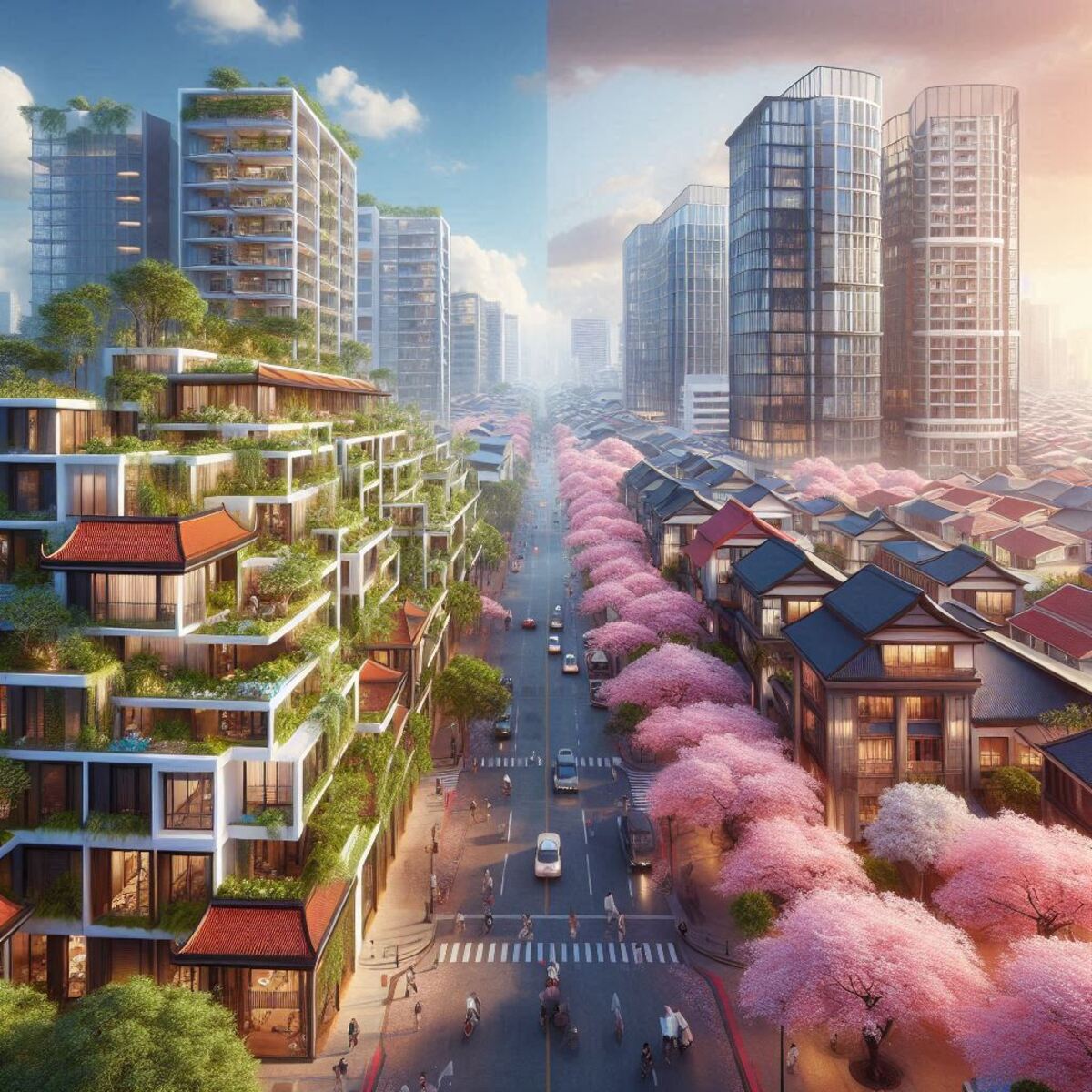At first glance, condominiums in Japan and Thailand may appear similar — beautiful exteriors, well-appointed facilities, and comparable price points.
Yet beneath the surface lies a fundamental difference — one that is often invisible but immensely impactful.
This article explores the less visible but critical distinctions in structure, management systems, institutional frameworks, and cultural expectations — factors that contribute to the long-term asset stability of Japanese condominiums.
◆ Hidden Difference 1: Japan’s Uncompromising Building Standards
■ Japan
- Engineered to withstand even magnitude 7 earthquakes, in compliance with the country’s stringent post-1981 seismic codes
- Advanced earthquake resilience built into structures through base isolation, damping systems, and reinforced seismic design
- Rigorous governmental oversight, including strict pre-construction approvals and post-completion audits
■ Thailand
- Due to low seismic risk, there is minimal legal obligation for earthquake-resistant construction
- Design and construction quality can vary significantly between developers
- In some cases, critical groundwork such as soil reinforcement or deep foundation piling may be insufficient or omitted
→ Even among similarly priced high-rise condominiums, the structural integrity can differ dramatically.

◆ Hidden Difference 2: Transparency in Property Management
■ 日本
- Governed by the Condominium Ownership Act, each building is managed by a residents’ association
- Regular general meetings, mandatory reserve funds, and long-term repair planning are legally required
- Full financial reports are disclosed to residents every year
■ Thailand
- Property management is often delegated entirely to external firms, with limited resident oversight
- Financial transparency and long-term repair planning are frequently unclear or undisclosed
- Maintenance of aging infrastructure is sometimes delayed or deprioritized
→ In contrast, Japan offers a structured system that protects the value of your property — even when you’re not there to oversee it yourself.
◆ Hidden Difference 3: Legal Framework and Institutional Clarity
- Real estate registration in Japan is highly rigorous and transparent
- Ownership structures — including freehold, leasehold, and co-ownership shares — are clearly defined and legally protected
- This legal clarity ensures smooth succession and resale, with unambiguous documentation of who owns what, and how
By contrast, Thailand’s legal framework is still evolving, with notable restrictions — including the fact that foreign nationals cannot legally own land outright.
◆ Hidden Difference 4: Cultural Norms That Reinforce Daily Order
In Japan, cleanliness, quietude, and orderly shared spaces are societal expectations embedded into everyday life.
- Building entrances are cleaned every morning
- Waste disposal follows strict schedules and meticulous sorting rules
- Residents avoid leaving personal items in common areas or engaging in loud conversations in hallways and elevators
In essence, the collective mindset of the residents actively sustains the visual integrity and long-term value of the property.

◆ A Thai Investor’s Perspective on What Japan Considers “Normal”
“I purchased a 15-year-old condominium in Tokyo. To my surprise, the interior — and even the common areas like walls and flooring — looked practically brand new. Considering how low the management fees are, I never expected this level of upkeep.” — Investor based in Bangkok
◆ Summary: True Value Lies Beneath the Surface — Even at the Same Price Point
Even when properties share similar price ranges, floor areas, and amenities, it is the unseen elements — structural integrity, management transparency, cultural discipline, and legal infrastructure — that ultimately determine a property’s true worth and long-term stability.
◆ Invisible Security: The Foundation of Japanese Real Estate Value
At first glance, condominiums in Thailand and Japan may seem comparable.
The structural difference only becomes clear when holding a property long-term or preparing to sell it.
This is why Japan consistently earns the confidence of global investors.




